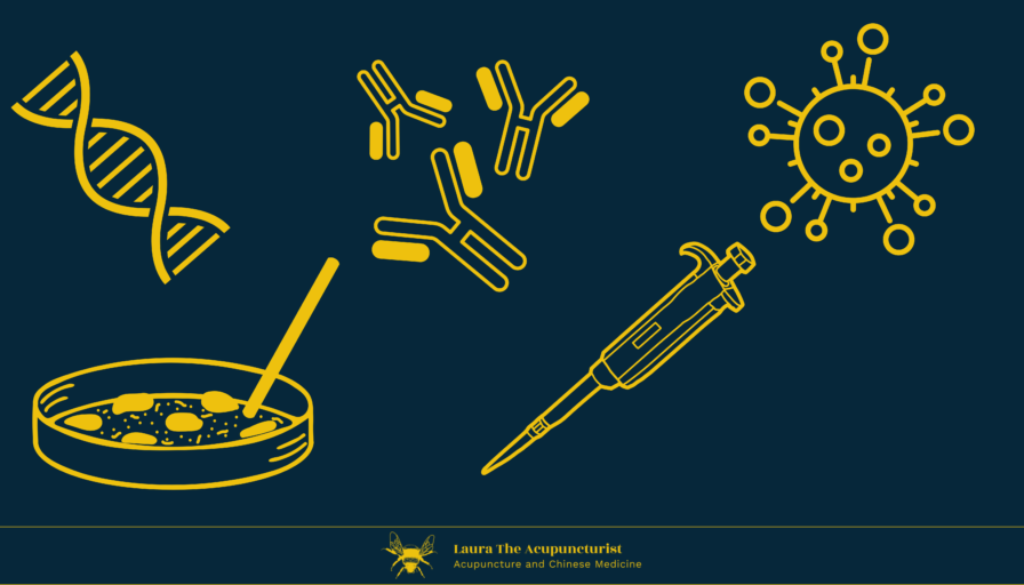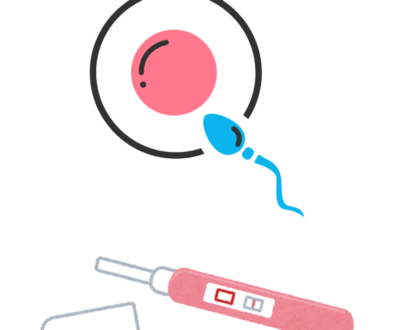Reproductive Immunology: What Is It?
Reproductive Immunology: How Your Immune System Impacts Fertility
When it comes to getting pregnant and carrying a healthy pregnancy to term, there is more going on with your immune system than you might realise. From implantation all the way to birth, the immune system plays a pivotal role in the survival and development of the embryo. It must recognise and accept the embryo rather than seeing it as a threat or a foreign invader. When this process doesn’t go smoothly, the body can reject implantation, which may contribute to recurrent miscarriage or unexplained infertility.
Understanding reproductive immunology and the immune-related conditions that affect fertility can help explain why, despite good quality embryos and perfect timing, conception may not be happening. Let’s explore the potential immune-related challenges, diagnostic tests, and how acupuncture and Chinese herbal medicine can support your fertility journey.
The Role of Your Immune System in Pregnancy
For a healthy pregnancy, the immune system must strike a delicate balance. Instead of attacking the embryo as an invader, the immune system should nurture and protect it. If this process goes awry, it can result in repeated unsuccessful IVF attempts, recurrent miscarriages, or unexplained infertility.
That being said, there are numerous potential causes of pregnancy loss or infertility. Issues such as genetic abnormalities, poor sperm or egg quality, uterine problems, or endometrial infections are all possibilities. Immune factors should be considered when other reasons have been excluded and recurrent losses or failed fertility treatments occur despite otherwise optimal conditions.
Types of Immune Conditions that Affect Fertility
Reproductive immunology is a relatively new and evolving field, and some of the immune conditions that can affect fertility include autoimmune antibodies, APS (Anti-Phospholipid Syndrome), anti-thyroid antibodies, and natural killer (NK) cells.
Autoimmune Antibodies
Autoimmune antibodies are like soldiers that mistakenly attack their own side. They see certain parts of your body as a threat and mount an immune response. There are different types of autoimmune antibodies that may influence fertility:
Anti-nuclear Antibodies (ANA): These antibodies are directed against the baby’s DNA. Studies suggest that ANA antibodies are linked to a lower chance of pregnancy and an increased risk of miscarriage.
Anti-Phospholipid Antibodies (APS): These antibodies attack phospholipids, leading to increased blood clotting. This can hinder the embryo’s ability to implant or maintain itself, often leading to first-trimester losses.
Anti-Thyroid Antibodies (ATA): ATA are antibodies that attack the thyroid. Even without overt hypothyroidism, ATA may still lead to a higher risk of early pregnancy loss. Hashimoto’s Disease, linked with ATA, is a common autoimmune disorder that can affect fertility.
Natural Killer (NK) Cells
NK cells are part of your body’s natural immune defence system and are typically beneficial, as they help target and kill harmful invaders. However, when levels of activated NK cells become too high, they may see the embryo as a potential threat and attack it, secreting TNF alpha (Tumour Necrosis Factor) and other chemicals that can damage the embryo.
Reproductive Immunology: A Controversial Area
The field of reproductive immunology is still developing, and there is ongoing debate among specialists regarding the influence of immune factors like NK cells. Some research indicates that NK cells may not have a significant impact on fertility outcomes, while other evidence suggests they do. This has led to a divergence of opinion among fertility clinics, with some embracing immune protocols to enhance pregnancy outcomes, while others remain sceptical.
Despite the controversy, many clinics that do incorporate immune-related treatments have seen higher pregnancy and live birth rates, particularly for those patients who have experienced multiple IVF failures. If you have exhausted other reasons for failed conception or recurrent loss, considering immune testing might be the next logical step.
Testing and Treatments for Immune Conditions
Some immune tests may be available through the NHS, particularly for those who have had multiple miscarriages. However, NK cell testing is typically only available privately. Immune system protocols to improve pregnancy outcomes may include a variety of medications, depending on the specific issue and individual history. Some commonly used treatments include:
Low Dose Aspirin and Heparin: To reduce the risk of blood clotting.
Prednisolone/Dexamethasone: Corticosteroids that can suppress immune activity.
Intralipids or IVIg: Infusions that can help regulate immune responses during pregnancy.
Traditional Chinese Medicine (TCM) and Immune Conditions
In TCM, reproductive immunology can often be interpreted through the lens of Liver Qi Stagnation or Blood Stasis. Stress, lifestyle, diet, and emotional health can all lead to imbalances that affect the immune system and fertility.
How Acupuncture Helps
Acupuncture is a wonderful tool for managing immune-related fertility issues because of its ability to balance the body’s energy (Qi) and regulate stress. Stress reduction is particularly important, as it can help mitigate Liver Qi Stagnation—a TCM condition often associated with blocked energy and improper immune responses.
Acupuncture also helps improve blood circulation to the reproductive organs, ensuring they receive optimal nourishment. Many patients find that acupuncture not only calms the mind but also has a positive impact on the immune system, promoting an environment that is more receptive to conception and pregnancy maintenance.
Chinese Herbal Medicine
Chinese herbs can also be used to address immune imbalances. Different herbs are used to help calm immune overactivity, reduce inflammation, and move Liver Qi or Blood Stasis where stagnation is present. Herbal medicine is tailored to each individual’s pattern, ensuring the best possible support based on a detailed understanding of their unique needs.
Conclusion
Reproductive immunology is a promising yet evolving field that sheds light on the complex role of the immune system in conception and pregnancy. If you’ve been facing recurrent miscarriages, failed IVF cycles, or unexplained infertility, it may be worthwhile to explore whether your immune system is playing a part. TCM, including acupuncture and Chinese herbal medicine, can provide powerful support in regulating the immune system, reducing stress, and supporting overall fertility.
If you have questions or would like to explore how we can support your fertility journey using acupuncture or herbal medicine, schedule your appointment. We are here to help navigate the complexities of reproductive health and support you every step of the way.
If you’re looking for a Fertility Support Expert, find your nearest practitioner.




